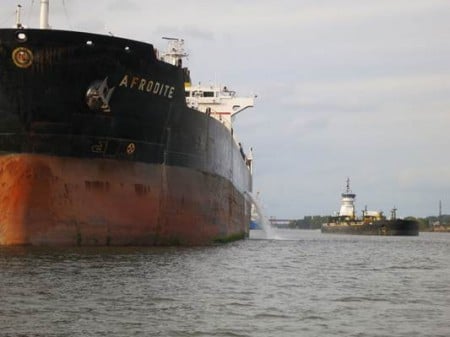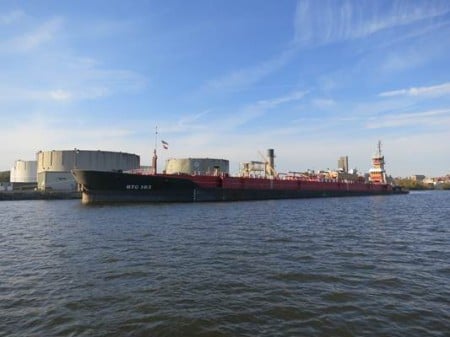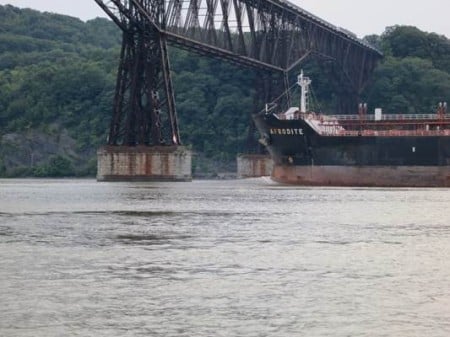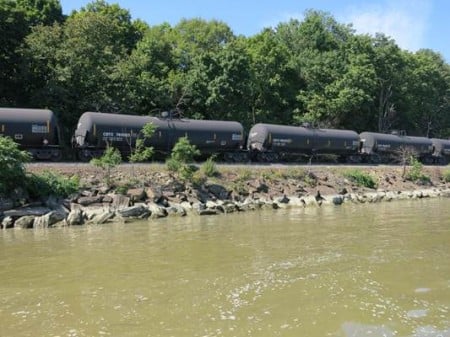RvK:A Watchdog on New Crude Oil Shipments on the Hudson – via Tanker, Barge & Train

Afrodite in the Port of Albany, Sept. 21, 2013. (The discharge visible is ballast water.) A crude oil barge is also visible starting south.
View more images on our Flickr site

Afrodite in the Port of Albany, Sept. 21, 2013. (The discharge visible is ballast water.) A crude oil barge is also visible starting south.
In the last 12 months, a new industry has started on the Hudson River, as shipments of crude oil from the Bakken fields of North Dakota have arrived by rail in Albany, for shipment by rail and barge to refineries in New Jersey and the east coast, and by tanker as far away as New Brunswick, Canada.
These shipments are something new to the river—we’ve never had this type of oil transported on the Hudson before.
Riverkeeper’s job is to look out for the river, and right now, we’re working cooperatively with state and federal agencies to determine the consequences of a crude oil spill, to assess regional response capabilities, and ensure that we have the equipment, manpower and knowhow in place from Albany to New York Harbor to protect the river and riverfront communities from a worst-case spill scenario.
Before these new shipments of Dakota crude oil began last year, the river has of course been a conduit for petroleum products, including heating oil, gasoline, ethanol and diesel fuel. Compared to a spill of these refined products, crude oil would have different and probably greater environmental impacts, and require different equipment and response capabilities.
Currently, oil spill response assets are most concentrated in New York Harbor. That’s because a spill there would shut down commerce—an expensive proposition. We want to make sure the Hudson River ecosystem and Hudson Valley communities are given the same high consideration and protection.
We are concerned that these oil shipments could present risks that we aren’t prepared for. Case-in-point: The Stena Primorsk, the first tanker to attempt to ship this oil on the Hudson, ran aground in December 2012 shortly after departing the Port of Albany on its first voyage. It was holding some 12 million gallons of oil—about as much as the Exxon Valdez. Fortunately, the ship’s double hull prevented oil from spilling—but the risk was plain to see in tanker stalled just 6 miles from where it began its voyage. Since shipments resumed in the summer of 2013, the Afrodite has been making constant trips between Albany and New Brunswick, carrying approximately 7 million gallons of oil, and it’s been reported that a second tanker will soon join it.
Riverkeeper is encouraged to see the state and federal agencies staging a spill response drill in New Windsor this week, including the state Department of Environmental Conservation; Global Companies; the U.S. Coast Guard; National Oceanic and Atmospheric Administration; local emergency management teams from Orange, Dutchess and Ulster counties; the New Windsor Fire Department; numerous local and nationwide contractors and several local law enforcement agencies. (See an article about the upcoming drill in the Albany Times Union.)
We are sure much will be learned and we’re thankful to be invited to participate as an observer.



